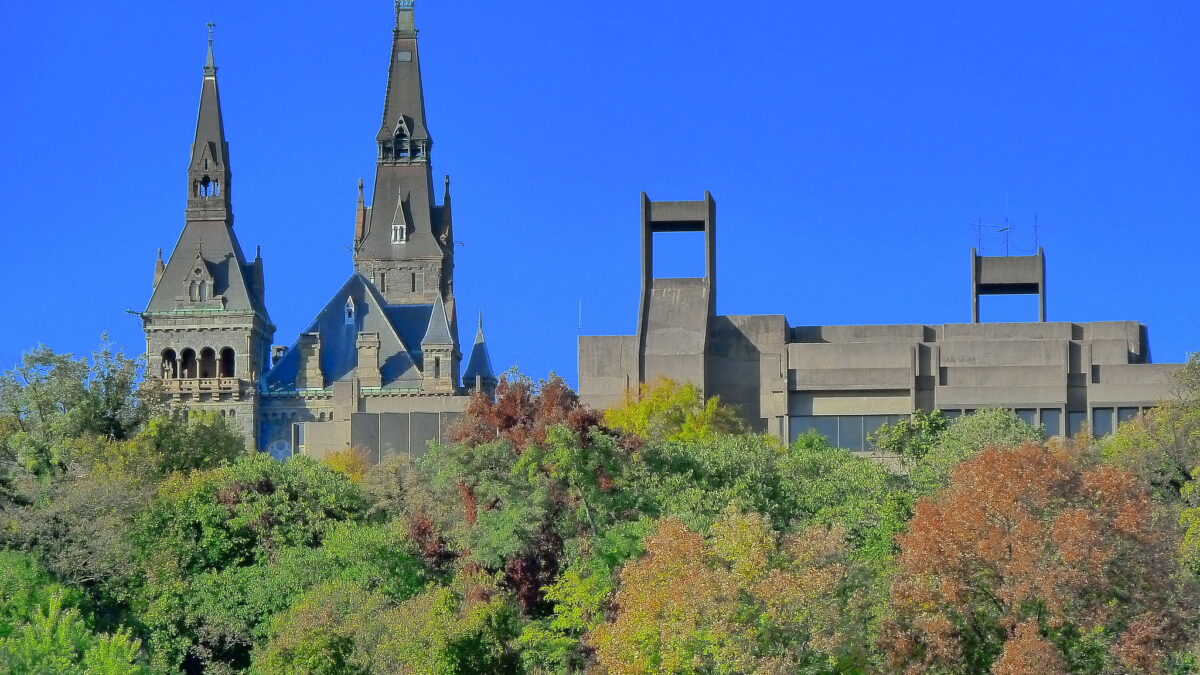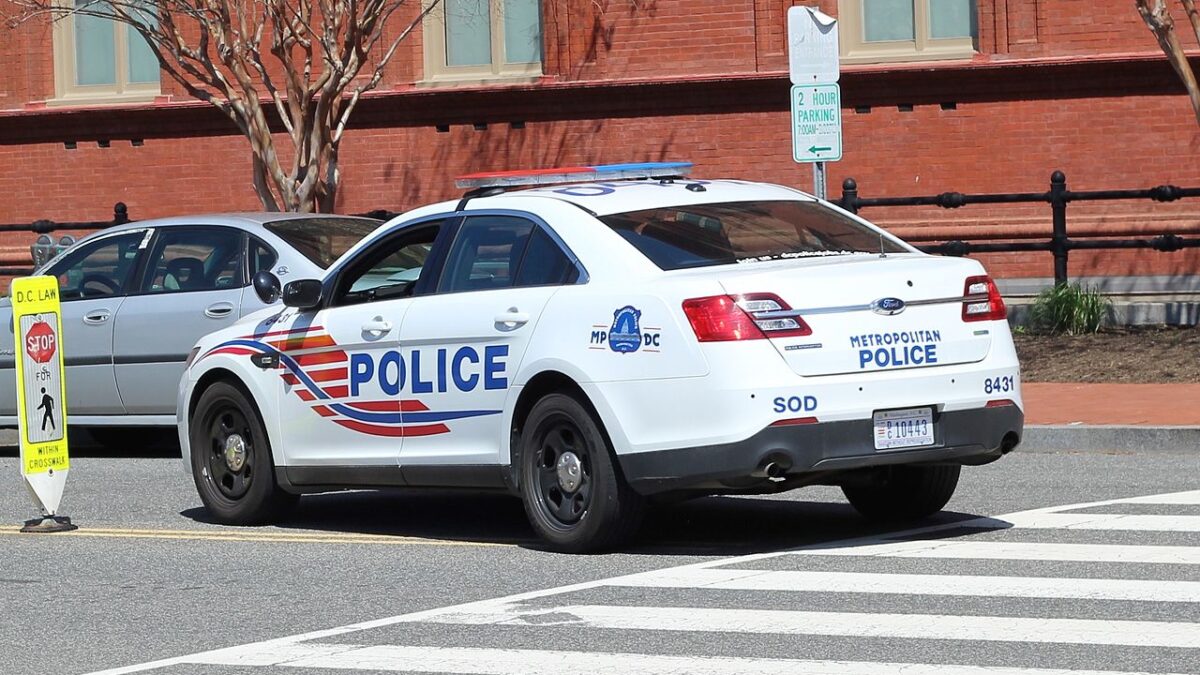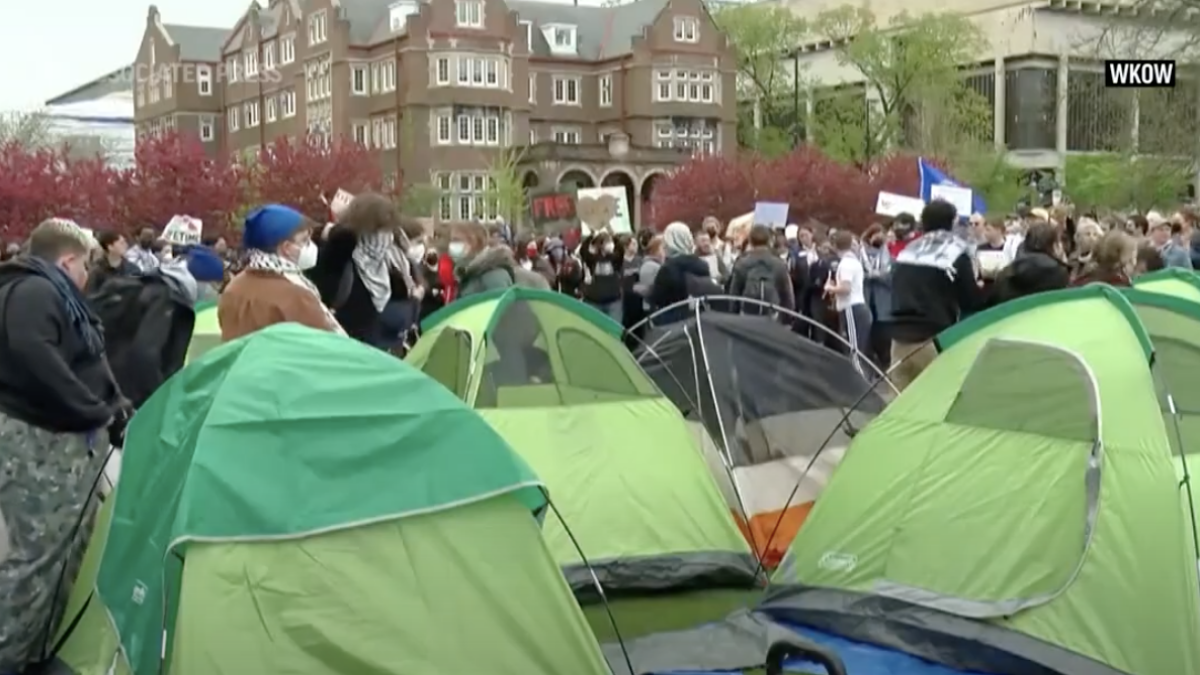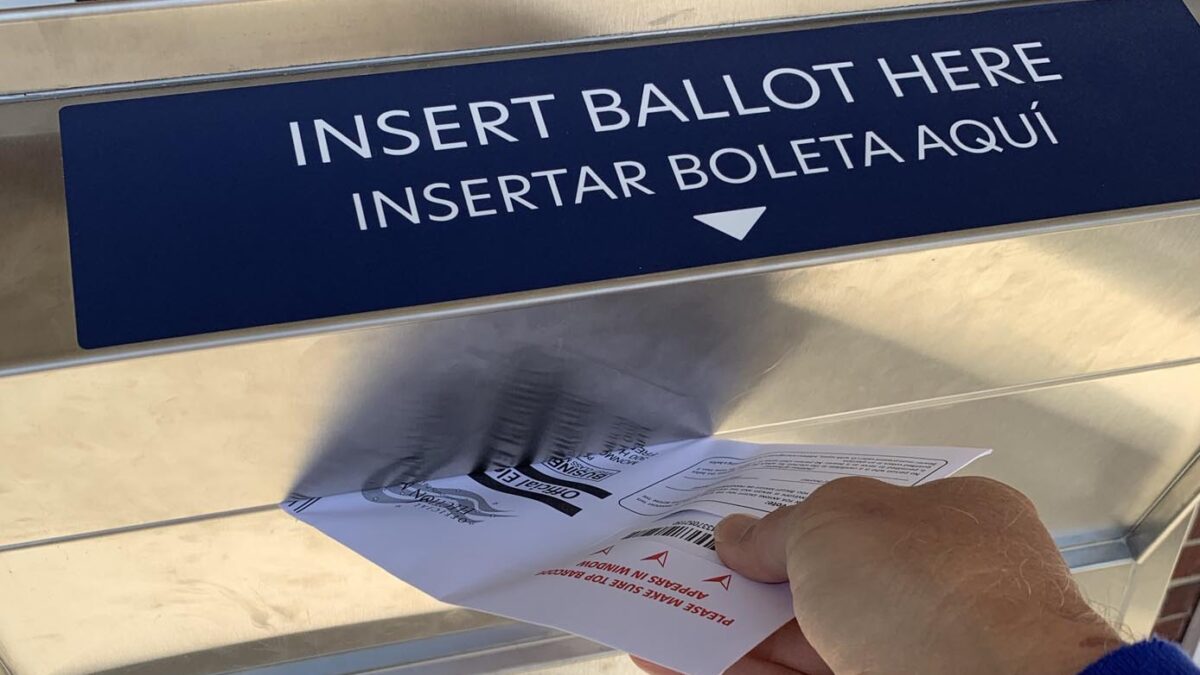As I left Georgetown Law School’s campus recently, dozens of police and security officers were stationed around McDonough Hall. Inside, Rudy Rochman, a peace activist and reservist in the Israeli military, was about to speak to students about combating antisemitism.
What happened next is now viral. Protesters demonstrated against the event, trying to interrupt the talk from outside the room before entering holding “IDF Off Campus” signs. One student raised her “blood” painted hands, which looked like a recreation of an anti-Israeli attack in Ramallah. As student Rachel Wolff described, protesters were “dress[ing] up like Jew-lynching terrorists who proudly display Jewish blood on their hands to celebrate their deaths.”
The situation highlights the inadequacy of the current campus speech paradigm to address a new form of disruption. In this case, students were able to harass their peers and impose on the free speech of others under the guise of silent protesting.
Faculty who attended the event found no free speech violations because the in-room demonstration was ostensibly short and quiet. If judged solely by the loudness or brashness of the incidents that occurred at Stanford University and other law schools, and only by what occurred inside the room, then the protest is perhaps in a gray area. But that’s only part of the story.

Musician Aaron Holder, who attended with Rochman, documented on his Instagram story that protesters were consciously trying to be as loud and disruptive as possible from outside the room while the event was going on. He filmed from the back of the room during the event, where audible screams could be heard coming from outside. Other students also reported hearing loud shouting that drowned out the speaker.
While Rochman was still presenting, Holder went outside and recorded a protester screaming into a bullhorn: “Do you want the ‘IOF’ [Israel Occupation Force] sniper in that room to hear you? You can be louder. He can hear you better.” She continued by chanting “Who’s campus?” to which the crowd retorted, “Our campus!”
Not Just Decibel Level
Even though the chants were loud enough for many attendees to hear inside, campus free speech policies should not solely consider decibel level. The better question is whether anti-speaker activity is intended to, and does, shut out speech. While the Georgetown protesters did not enter the room and shout down the speaker like Stanford students did to Judge Stuart Kyle Duncan, they still managed to push the limits of permissible conduct to achieve the most disruptive effect possible. Their actions conflict with the ultimate goal of campus free speech policies — to allow speakers to be heard and to promote the free exchange of ideas.
That is, the protest speech that ought to be welcomed on campus is different from what students displayed on Thursday night. Students should be protected when they challenge one speaker’s ideas with other, contrary ideas, no matter how unpopular. But there’s a difference between policies that permit and protect a wide range of views and policies that allow protesters to menacingly and intentionally overtake another speaker.
Moreover, campuses should separately consider whether and when particularly outrageous protests become harassment. This should continue to be a high standard so speech that is merely insulting or controversial is not unfairly punished.
Here, it is necessary to question whether the conduct was harassment because it was targeted at my Israeli and Jewish peers. Protesters were intent on disrupting the event from the outside. They came into the classroom to intimidate with “bloody” hands and “IDF Off Campus” signs, even though mandatory military service is required of Israelis — and some in the audience were called to service. This is very different from a student who claims that an opposing viewpoint offends their identity without any justification. As thousands on X have pointed out, the severity of the conduct should at least warrant review.
In reality, this protest wasn’t quiet. It attempted to silence without incurring consequences and to intimidate while disguising itself as free speech.








